View main conference page (November 2021)

2021 Conference: Featured Speakers
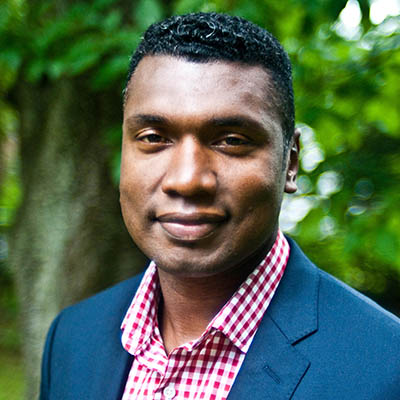 Stephon Alexander is a theoretical physicist, computational physicist, and author whose work is at the interface between cosmology, particle physics, quantum gravity and music cognition. His expertise lies in constructing new theories and models of the early universe that have predictions for the universe at present, such as dark energy and dark matter. He also combines mathematics and tools from theoretical physics into machine learning, the geometry and cognition of musical perception, biophysics, signal processing and computational algorithms.
Stephon Alexander is a theoretical physicist, computational physicist, and author whose work is at the interface between cosmology, particle physics, quantum gravity and music cognition. His expertise lies in constructing new theories and models of the early universe that have predictions for the universe at present, such as dark energy and dark matter. He also combines mathematics and tools from theoretical physics into machine learning, the geometry and cognition of musical perception, biophysics, signal processing and computational algorithms.
In his critically acclaimed book, The Jazz of Physics, Alexander revisits the ancient interconnection between music and the evolution of astrophysics and the laws of motion. He explores new ways music, in particular jazz music, mirrors modern physics, such as quantum mechanics, general relativity, and the physics of the early universe. He also discusses ways that innovations in physics have been and can be inspired from “improvisational logic” exemplified in Jazz performance and practice. Alexander is also a professional touring jazz musician.
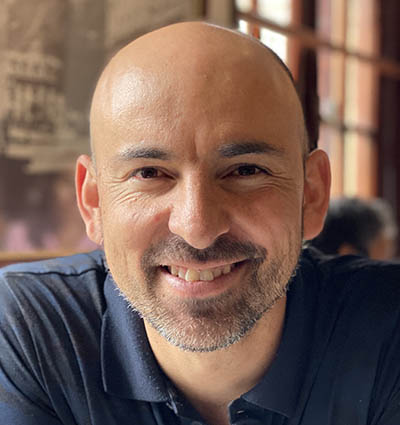 Federico Ardila (San Francisco State University) investigates objects in algebra, geometry, topology, and applications by understanding their underlying combinatorial structure. His interests include polytopes, matroids, hyperplane arrangements, Lie and Coxeter combinatorics, Hopf algebras, and tropical geometry.
Federico Ardila (San Francisco State University) investigates objects in algebra, geometry, topology, and applications by understanding their underlying combinatorial structure. His interests include polytopes, matroids, hyperplane arrangements, Lie and Coxeter combinatorics, Hopf algebras, and tropical geometry.
Federico is Professor of Mathematics at San Francisco State University. He has received the CAREER Award of the NSF, the National Teaching Award of the MAA, and the Programs that Make a Difference Award of the AMS in the US, and the Premios Nacionales de Ciencias y de Matemáticas de Colombia. He is a Fellow of the AMS and a member of the Academia Colombiana de Ciencias.
Federico is committed to fostering an increasingly just, equitable, and welcoming community of mathematicians. He has advised more than 50 thesis students, he co-directs the MSRI-UP program for students from underrepresented ethnic groups, he founded the SFSU-Colombia Combinatorics Initiative, and he hosts over 200 hours of combinatorics lectures online. His efforts are grounded on the following axioms:
1. Mathematical potential is equally present in different groups, irrespective of geographic, demographic, and economic boundaries.
2. Everyone can have joyful, meaningful, and empowering mathematical experiences.
3. Mathematics is a powerful, malleable tool that can be shaped and used differently by various communities to serve their needs.
4. Every student deserves to be treated with dignity and respect.
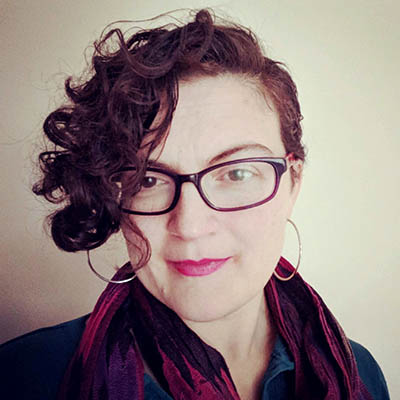 Carrie Diaz Eaton (Bates College) is an Associate Professor of Digital and Computational Studies at Bates. As a mathematical and computational biologist, she has worked in research areas from computational neurobiology to disease ecology and evolutionary theory and uses this grounding to apply network perspectives for STEM Education research and advocacy. Dr. Diaz Eaton explores STEM Education reform communities by qualitatively, quantitatively, and computationally examining language, synthesizing frameworks across disciplines in undergraduate quantitative and computational education, creating digital counternarrative spaces, and fostering collaborative professional development. Dr. Diaz Eaton is co-founder and lead Principal Investigator of the Institute for a Racially Just, Inclusive, and Open STEM Education (RIOS), a virtual synthesis center which develops collaborative networks of leaders who are using open education to transform STEM education towards justice and equity.
Carrie Diaz Eaton (Bates College) is an Associate Professor of Digital and Computational Studies at Bates. As a mathematical and computational biologist, she has worked in research areas from computational neurobiology to disease ecology and evolutionary theory and uses this grounding to apply network perspectives for STEM Education research and advocacy. Dr. Diaz Eaton explores STEM Education reform communities by qualitatively, quantitatively, and computationally examining language, synthesizing frameworks across disciplines in undergraduate quantitative and computational education, creating digital counternarrative spaces, and fostering collaborative professional development. Dr. Diaz Eaton is co-founder and lead Principal Investigator of the Institute for a Racially Just, Inclusive, and Open STEM Education (RIOS), a virtual synthesis center which develops collaborative networks of leaders who are using open education to transform STEM education towards justice and equity.
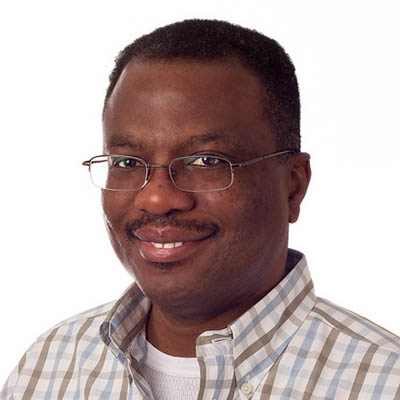 Wilfrid Gangbo (University of California, Los Angeles) is a Professor of Mathematics at the University of California, Los Angeles and a fellow of the American Mathematical Society. His areas of research are the calculus of variations and partial differential equations. He was awarded the 2018-19 Chancellor Professorship by the mathematics department of the University of California, Berkeley.
Wilfrid Gangbo (University of California, Los Angeles) is a Professor of Mathematics at the University of California, Los Angeles and a fellow of the American Mathematical Society. His areas of research are the calculus of variations and partial differential equations. He was awarded the 2018-19 Chancellor Professorship by the mathematics department of the University of California, Berkeley.
Gangbo delivered numerous plenary talks and was a distinguished speaker in many colloquia all over the United States, Europe, Asia and Africa. He supervised the dissertation of over ten students and mentored over twelve postdocs. He has been associate editor for several international journals and served on the advisory boards of various institutions. Gangbo was a program director at the National Science Foundation in Arlington, VA, from 2012 to 2013 and the graduate vice chair in the department of mathematics at UCLA from 2018 to 2021.
With Professors. J. Nelson and T. Coleman, they launched the David Blackwell Summer Research Institute in 2021. This is a six week elite research program for undergraduate students, which aims to honor Blackwell's legacy by attempting to increase the number of students who aspire to achieve his level of excellence and widen participation of African American in obtaining PhDs in mathematics.
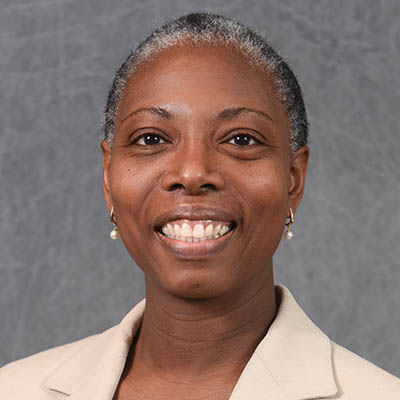 Jacqueline M. Hughes-Oliver (North Carolina State University) is a Professor of Statistics at North Carolina State University. She has made fundamental contributions in a number of areas including methodological research on prediction and classification, variable and model selection with dimension reduction, design of experiments, and spatial modeling. Application areas include drug discovery and cheminformatics, environmental modeling, transportation modeling, engineering manufacturing, genomics, and metabolomics. She is a Fellow of the American Statistical Association, and was awarded the 2014 Blackwell-Tapia Prize for research excellence in the mathematical and statistical sciences. Dr. Hughes-Oliver served as Director of the Exploratory Center for Cheminformatics Research (2005-2009), and as Director of Graduate Programs for the Department of Statistics at North Carolina State University (2007-2010). She was elected to the North Carolina State University Academy of Outstanding Teachers in 1996, named Alumni Distinguished Undergraduate Professor in 2001, was the College of Physical and Mathematical Sciences Board of Governors’ Awardee (for pedagogical impact) in 2004, and was the College of Sciences Board of Governors’ Awardee (for pedagogical impact) in 2020.
Jacqueline M. Hughes-Oliver (North Carolina State University) is a Professor of Statistics at North Carolina State University. She has made fundamental contributions in a number of areas including methodological research on prediction and classification, variable and model selection with dimension reduction, design of experiments, and spatial modeling. Application areas include drug discovery and cheminformatics, environmental modeling, transportation modeling, engineering manufacturing, genomics, and metabolomics. She is a Fellow of the American Statistical Association, and was awarded the 2014 Blackwell-Tapia Prize for research excellence in the mathematical and statistical sciences. Dr. Hughes-Oliver served as Director of the Exploratory Center for Cheminformatics Research (2005-2009), and as Director of Graduate Programs for the Department of Statistics at North Carolina State University (2007-2010). She was elected to the North Carolina State University Academy of Outstanding Teachers in 1996, named Alumni Distinguished Undergraduate Professor in 2001, was the College of Physical and Mathematical Sciences Board of Governors’ Awardee (for pedagogical impact) in 2004, and was the College of Sciences Board of Governors’ Awardee (for pedagogical impact) in 2020.
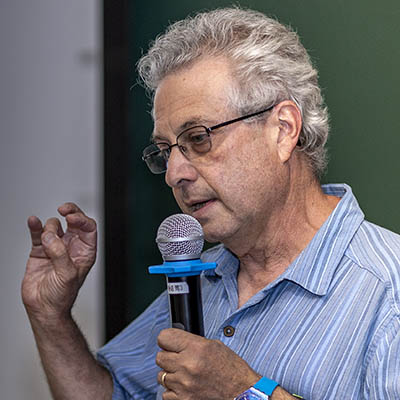 Carlos Kenig (University of Chicago) is the Louis Block Distinguished Service Professor in the Department of Mathematics at the University of Chicago. Kenig is recognized for his applications of tools and techniques of harmonic analysis to a number of different areas of partial differential equations. In particular, in the last 30 years Kenig has made pioneering contributions to the study of nonlinear dispersive equations, including his recent research on the classification of the long-‐time behavior of large solutions
Carlos Kenig (University of Chicago) is the Louis Block Distinguished Service Professor in the Department of Mathematics at the University of Chicago. Kenig is recognized for his applications of tools and techniques of harmonic analysis to a number of different areas of partial differential equations. In particular, in the last 30 years Kenig has made pioneering contributions to the study of nonlinear dispersive equations, including his recent research on the classification of the long-‐time behavior of large solutions
Kenig was born in Buenos Aires, Argentina in 1953. He obtained his PhD at the University of Chicago in 1978. After being an instructor at Princeton University and a professor at the University of Minnesota, Kenig returned to the University of Chicago in 1985. Kenig was awarded the Salem Prize in 1984 and the Bocher Prize of the American Mathematical Society in 2008. Kenig received the Solomon Lefschetz medal of the Mathematics Council of the Americas in 2021. He was an invited speaker at the International Congress of Mathematicians in 1986 and 2002 and a plenary speaker in 2010. In 2017 Kenig delivered the American Mathematical Society’s Colloquium lectures. Kenig is a Fellow of the American Academy of Arts and Sciences and of the American Mathematical Society. He is a member of the National Academy of Sciences of the US and a past vice-‐president of the American Mathematical Society. Kenig currently serves as the President of the International Mathematical Union for the period 2019-‐2022.
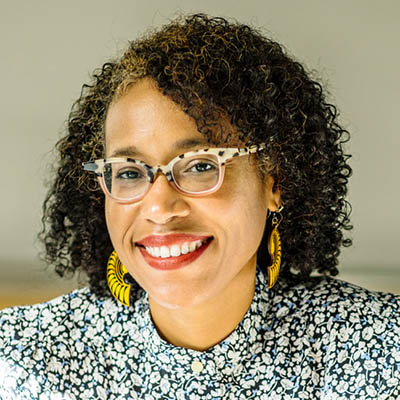 Omayra Ortega (Sonoma State University) is an assistant professor of mathematics & statistics at Sonoma State University in Sonoma County, California. She earned her Ph.D. (2008) and an M.S. (2005) in applied mathematics and computational sciences from the University of Iowa, where she also was awarded her Masters of Public Health. She earned a B.A. in music and in pure mathematics from Pomona College in 2001. Her scholarly interests reflect her expertise in mathematics: mathematical and computational biology, mathematical epidemiology in developing countries, infectious disease epidemiology, and the participation of women and minorities in sciences. Dr. Ortega is currently the President of the National Association of Mathematicians Inc. (NAM), a non-profit professional organization in the mathematical sciences with a mission and purpose of promoting excellence in the mathematical sciences and promoting the mathematical development of all underrepresented minorities. In her free time Dr. Ortega enjoys the great outdoors, roller skating and the fiber arts.
Omayra Ortega (Sonoma State University) is an assistant professor of mathematics & statistics at Sonoma State University in Sonoma County, California. She earned her Ph.D. (2008) and an M.S. (2005) in applied mathematics and computational sciences from the University of Iowa, where she also was awarded her Masters of Public Health. She earned a B.A. in music and in pure mathematics from Pomona College in 2001. Her scholarly interests reflect her expertise in mathematics: mathematical and computational biology, mathematical epidemiology in developing countries, infectious disease epidemiology, and the participation of women and minorities in sciences. Dr. Ortega is currently the President of the National Association of Mathematicians Inc. (NAM), a non-profit professional organization in the mathematical sciences with a mission and purpose of promoting excellence in the mathematical sciences and promoting the mathematical development of all underrepresented minorities. In her free time Dr. Ortega enjoys the great outdoors, roller skating and the fiber arts.
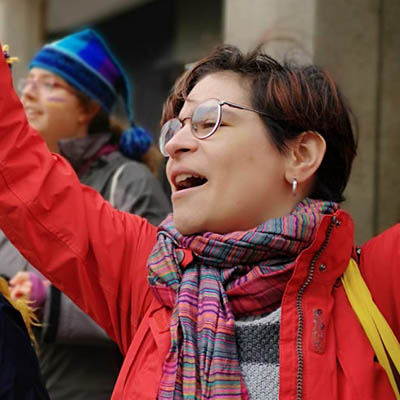 Juanita Pinzón Caicedo (University of Notre Dame) was born and raised in Bogotá, Colombia and lived there until she moved to the US to pursue a PhD in Mathematics at Indiana University. Juanita is now an Assistant Professor at the University of Notre Dame. The mathematical questions that Juanita aims to answer belong to low-dimensional topology. More specifically, Juanita studies knots from the perspective of the surfaces they bound in the 4-ball, and relies mostly on tools from gauge theory and Floer homologies.
Juanita Pinzón Caicedo (University of Notre Dame) was born and raised in Bogotá, Colombia and lived there until she moved to the US to pursue a PhD in Mathematics at Indiana University. Juanita is now an Assistant Professor at the University of Notre Dame. The mathematical questions that Juanita aims to answer belong to low-dimensional topology. More specifically, Juanita studies knots from the perspective of the surfaces they bound in the 4-ball, and relies mostly on tools from gauge theory and Floer homologies.
 Aaron Pollack (University of California, San Diego) received his Ph.D. in mathematics in 2014 from Princeton University. He was an NSF Postdoctoral Research Fellow at Stanford from 2014-2017, a member at the IAS in 2017-2018, and an Assistant Professor at Duke University from 2017-2020. He is now faculty at UC San Diego. Pollack's research is in the arithmetic of automorphic forms, with emphasis on automorphic forms on exceptional groups and the special values of L-functions. Recently, his work was honored with the 2021-2022 AMS Centennial Research Fellowship.
Aaron Pollack (University of California, San Diego) received his Ph.D. in mathematics in 2014 from Princeton University. He was an NSF Postdoctoral Research Fellow at Stanford from 2014-2017, a member at the IAS in 2017-2018, and an Assistant Professor at Duke University from 2017-2020. He is now faculty at UC San Diego. Pollack's research is in the arithmetic of automorphic forms, with emphasis on automorphic forms on exceptional groups and the special values of L-functions. Recently, his work was honored with the 2021-2022 AMS Centennial Research Fellowship.
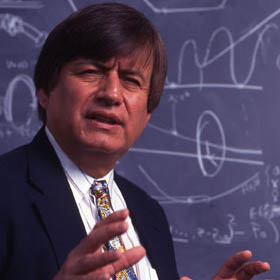 Richard A. Tapia (Rice University) is the University Professor and Maxfield-Oshman Professor of Engineering, Rice
University was born in Los Angeles to parents who emigrated from Mexico when they were
children, seeking educational opportunities. He was the first in his family to attend college,
earning his B.A., M.A., and Ph.D. degrees in mathematics from the University of California, Los
Angeles. Due to his efforts, Rice University has received national recognition for its educational
outreach programs, and the Rice Computational and Applied Mathematics Department has
become a national leader in producing women and underrepresented minority Ph.D.s in the
mathematical sciences.
Richard A. Tapia (Rice University) is the University Professor and Maxfield-Oshman Professor of Engineering, Rice
University was born in Los Angeles to parents who emigrated from Mexico when they were
children, seeking educational opportunities. He was the first in his family to attend college,
earning his B.A., M.A., and Ph.D. degrees in mathematics from the University of California, Los
Angeles. Due to his efforts, Rice University has received national recognition for its educational
outreach programs, and the Rice Computational and Applied Mathematics Department has
become a national leader in producing women and underrepresented minority Ph.D.s in the
mathematical sciences.
Dr. Tapia’s major research contributions have been in the area of computational optimization, both linear and nonlinear programming, where he pioneered the exploration and settlement of the important computational methods in numerical optimization known as primal-dual interior point methods. Tapia has authored or co-authored two books and more than 100 mathematical research papers, and is currently authoring a graduate level textbook on the foundations of optimization.
Dr. Tapia’s honors include: election to the National Academy of Engineering (1992) for his seminal work in interior point methods; being the first recipient of the A. Nico Habermann Award from the Computing Research Association (1994) for outstanding contributions in aiding members of underrepresented groups within the computing community; the Presidential Award for Excellence in Science, Mathematics, and Engineering Mentoring from President Bill Clinton (1996); appointment by President Clinton to the National Science Board, the governing body of the National Science Foundation (1996); the Lifetime Mentor Award from the American Association for the Advancement of Science (1997); and the establishment of a lecture series to honor Dr. Tapia and African American mathematician David Blackwell at Cornell University (2000). The Richard Tapia Celebration of Diversity in Computing honors his many contributions to diversity (2001). He received the Hispanic Engineer of the Year Award from Hispanic Engineer Magazine in 1996, and was inducted into the Hispanic Engineer National Achievement Awards Conference Hall of Fame in 1997. Hispanic Engineer & Informational Technology Magazine also selected him as one of the 50 Most Important Hispanics in Technology and Business for 2004. That same year Dr. Tapia was inducted into the Texas Science Hall of Fame.
Dr. Tapia has been named one of 20 most influential leaders in minority math education by the National Research Council; listed as one of the 100 most influential Hispanics in the U.S. by Hispanic Business magazine (2008); and given the “Professor of the Year” award by the Association of Hispanic School Administrators, Houston Independent School District, Houston, Texas. In 2005, Tapia was elected to the Board of Directors for TAMEST, comprising the Texas members of the National Academy of Engineering, National Academy of Sciences and the Institute of Medicine. In 2009, Tapia received the Hispanic Heritage Award for Math and Science. In 2011, President Obama named Dr. Tapia one of the recipients of the National Medal of Science, the highest honor bestowed by the United States government on scientists and engineers.
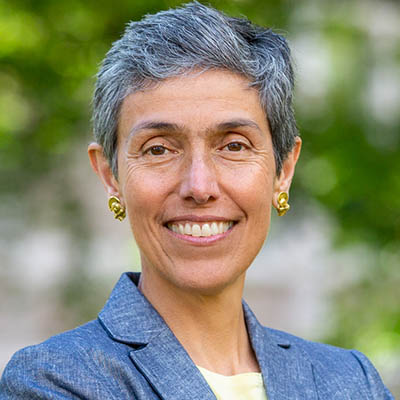 Tatiana Toro (University of Washington) joined the Department of Mathematics at University of Washington in 1996.She is currently the Craig McKibben & Sarah Merner Professor in Mathematics. She is the incoming Director of the Mathematical Sciences Research Institute (MSRI) in Berkeley, CA beginning August 2022 for a five-year term. Her primary research interest lies in the interface of Partial Differential Equations, Harmonic Analysis and Geometric Measure Theory. She earned her PhD from Stanford University under the supervision of Leon Simon (1992) and received her BS equivalent from the Universidad Nacional de Colombia, Bogota, Colombia (1986). She was a visiting member at the Institute for Advanced Study in Princeton, NJ (1992–1993). She was a Morrey Jr. Assistant Professor, University of California at Berkeley (1993-1994) and an Assistant Professor at the University of Chicago (1994-1996).
Tatiana Toro (University of Washington) joined the Department of Mathematics at University of Washington in 1996.She is currently the Craig McKibben & Sarah Merner Professor in Mathematics. She is the incoming Director of the Mathematical Sciences Research Institute (MSRI) in Berkeley, CA beginning August 2022 for a five-year term. Her primary research interest lies in the interface of Partial Differential Equations, Harmonic Analysis and Geometric Measure Theory. She earned her PhD from Stanford University under the supervision of Leon Simon (1992) and received her BS equivalent from the Universidad Nacional de Colombia, Bogota, Colombia (1986). She was a visiting member at the Institute for Advanced Study in Princeton, NJ (1992–1993). She was a Morrey Jr. Assistant Professor, University of California at Berkeley (1993-1994) and an Assistant Professor at the University of Chicago (1994-1996).
Toro serves in the Board of Trustees of the Institute of Pure and Applied Mathematics (IPAM) and in the Board of Directors of the Pacific Institute for the Mathematical Sciences (PIMS). She has played a leading role in the organization of the Latinx in the Mathematical Sciences conferences at IPAM (2015 & 2018).
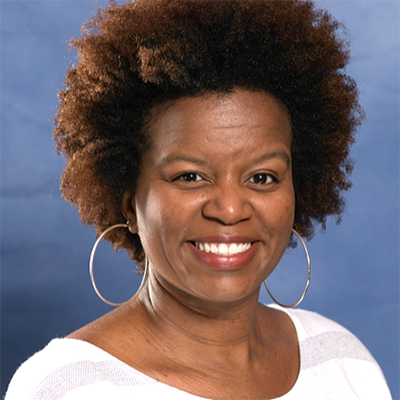 Chelsea Walton (Rice University) is an Associate Professor in the Mathematics Department at Rice University. Her research interests are in various aspects of Noncommutative Algebra, including quantum symmetries, algebras with origins in physics, noncommutative invariant theory, deformation theory, representation theory, and homological methods. Prior to joining Rice, Walton held positions at the University of Illinois Urbana-Champaign, Temple University, the Massachusetts Institute of Technology, University of Washington Seattle, and at MSRI as a postdoctoral fellow and later as a research program co-organizer. She received her Ph.D in Mathematics from the University of Michigan in 2011.
Chelsea Walton (Rice University) is an Associate Professor in the Mathematics Department at Rice University. Her research interests are in various aspects of Noncommutative Algebra, including quantum symmetries, algebras with origins in physics, noncommutative invariant theory, deformation theory, representation theory, and homological methods. Prior to joining Rice, Walton held positions at the University of Illinois Urbana-Champaign, Temple University, the Massachusetts Institute of Technology, University of Washington Seattle, and at MSRI as a postdoctoral fellow and later as a research program co-organizer. She received her Ph.D in Mathematics from the University of Michigan in 2011.